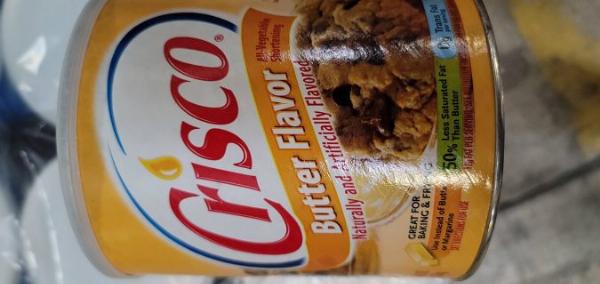Vegan Shortening vs. Coconut Oil: Which Is Better for Baking?

Strong 8k brings an ultra-HD IPTV experience to your living room and your pocket.
When it comes to baking, choosing the right fat can make all the difference in the outcome of your culinary creations. With the rise in popularity of veganism and plant-based diets, many bakers are exploring alternatives to traditional baking fats like butter and lard. Two popular options in the vegan baking world are vegetable shortening and coconut oil. But which one is better for baking? Let's dive into the details and find out.
What is Vegan Shortening?
Vegan shortening is a plant-based alternative to traditional shortening, which is typically made from animal fats. It is usually made from a combination of vegetable oils like palm, soybean, or canola oil. One of the key benefits of vegetable shortening vegan is that it is free from animal products, making it suitable for vegans and those with dietary restrictions.
Coconut Oil: A Versatile Option
Coconut oil has gained popularity in recent years for its versatility and health benefits. It is extracted from the meat of coconuts and is solid at room temperature, similar to traditional shortening. Coconut oil has a distinct flavor and aroma, which can add a tropical twist to baked goods. Additionally, it is rich in medium-chain triglycerides (MCTs), which are believed to have various health benefits, including boosting metabolism and aiding in weight loss.
Texture and Consistency
One of the most important factors to consider when choosing a fat for baking is its texture and consistency. Both vegan shortening and coconut oil can provide the necessary fat content for baked goods, but they may yield slightly different results in terms of texture.
Vegan shortening tends to have a more neutral flavor and a firmer texture than coconut oil, making it ideal for recipes that require a solid fat, such as pie crusts and cookies. It also has a higher melting point than coconut oil, which means that baked goods made with vegan shortening are less likely to spread during baking.
On the other hand, coconut oil has a distinct coconut flavor and a softer texture than vegan shortening. While this can add depth of flavor to certain recipes, it may not be desirable in more delicate baked goods where a neutral flavor is preferred. However, coconut oil can be a great option for recipes that call for a liquid fat, such as muffins and quick breads.
Health Considerations
When it comes to health, both vegan shortening and coconut oil have their pros and cons. Vegan shortening is typically made from hydrogenated vegetable oils, which contain trans fats. Trans fats have been linked to an increased risk of heart disease and other health issues, so it's important to consume them in moderation.
On the other hand, coconut oil is high in saturated fat, which has been controversial in the world of nutrition. While some studies suggest that saturated fat may increase levels of LDL (bad) cholesterol, others argue that the type of saturated fat found in coconut oil may have neutral or even beneficial effects on cholesterol levels.
Ultimately, the key to using fats in baking is moderation. Both vegan shortening and coconut oil can be part of a healthy diet when consumed in moderation as part of a balanced lifestyle.
Environmental Impact
In addition to health considerations, many people are also concerned about the environmental impact of the foods they consume. Both vegan shortening and coconut oil have their own set of environmental issues to consider.
Palm oil, which is commonly used in vegan shortening, has been linked to deforestation, habitat destruction, and human rights abuses in countries where it is produced. As consumers become more aware of these issues, there has been a growing demand for sustainably sourced palm oil and alternative ingredients.
Coconut oil production also has its environmental challenges, including deforestation, habitat destruction, and greenhouse gas emissions. However, some companies are working to promote sustainable practices in coconut oil production, such as agroforestry and organic farming methods.
Conclusion: Which Is Better for Baking?
In the debate between vegan shortening and coconut oil, there is no clear winner. Both fats have their own unique qualities and can be used successfully in baking, depending on the recipe and personal preference. Vegan shortening may be a better choice for recipes that require a solid fat and a neutral flavor, while coconut oil can add a tropical twist to baked goods and works well in recipes that call for a liquid fat.
Ultimately, the best fat for baking is the one that meets your dietary needs, taste preferences, and ethical considerations. Whether you choose vegan shortening, coconut oil, or another alternative fat, experimenting with different ingredients can lead to delicious results in the kitchen.
Note: IndiBlogHub features both user-submitted and editorial content. We do not verify third-party contributions. Read our Disclaimer and Privacy Policyfor details.


